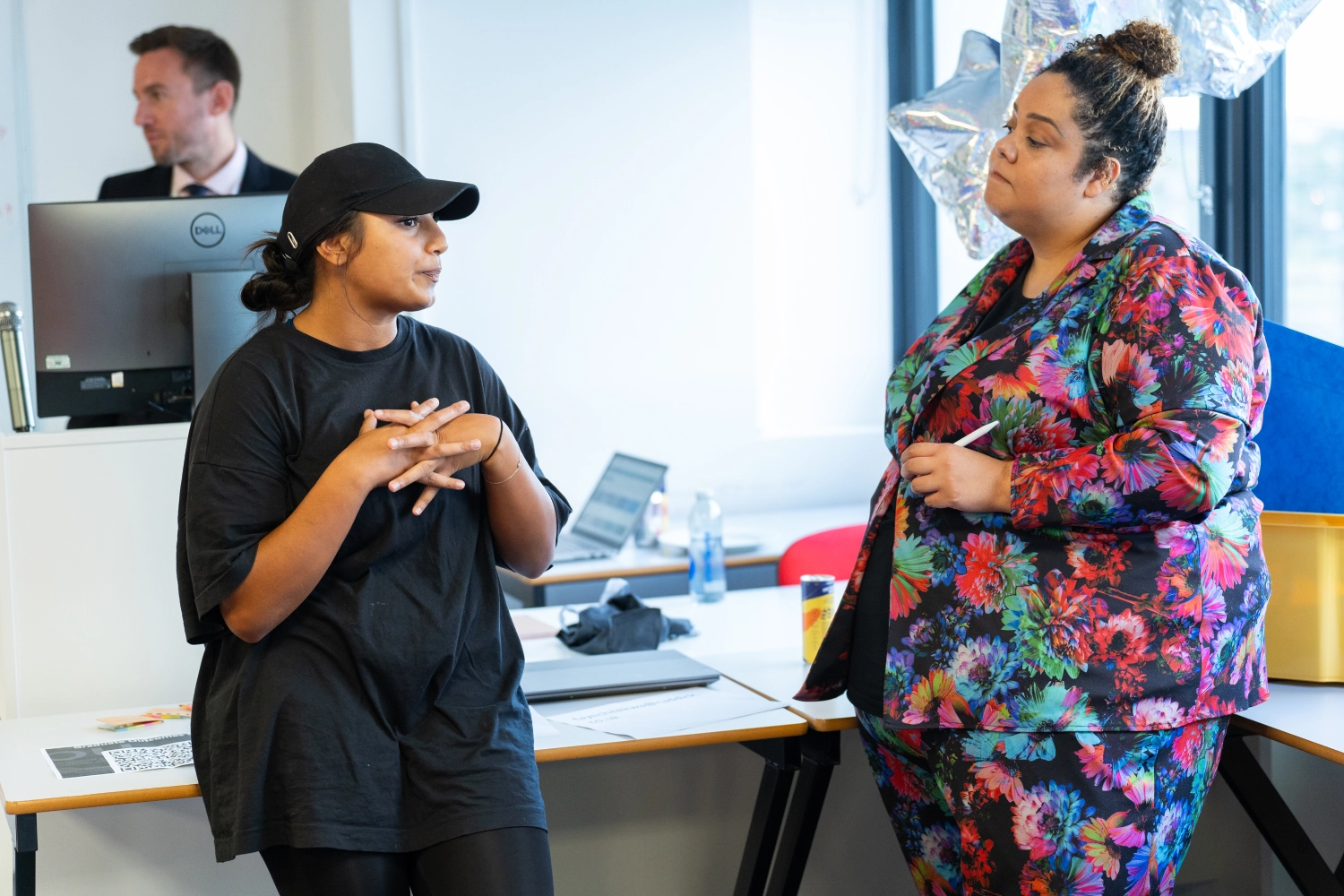A1. Mentorship can help you build your confidence and relationships. It is a great chance for you to develop resilience and character. Your mentor will also help you improve your mental well-being, encourage you to raise your aspirations and forge new connections to achieve your career goals.
The word mentorship originated from Mentor, an ancient character in Greek literature called Odyssey. When Odysseus, king of Ithaca, left for the Trojan War, he asked his trusted friend and confidant, Mentor, to guide his son, Telemachus. This established the concept of a mentor as a person who leads and teaches. The mentoring relationship is seen as a relationship between a teacher and a student. But the purpose of career counselling or mentorship for students is not just about receiving advice. When it comes to career development, mentoring plays a much more expansive role. It is about building relationships, learning from experiences and growing both personally and professionally.
What is mentorship?
Mentorship is a relationship where someone with experience (the mentor) guides someone less experienced (the mentee) to grow and succeed. This guidance is not just work-related. The mentor shares life lessons and offers their support to help you, the mentee, grow and raise aspirations. With their help received, you can develop resilience and character, improve your mental well-being and forge new connections. You can also acquire self-development skills to become the best version of yourself. Whether you need career direction or help with school, mentorship can make all the difference. A mentor can help you build confidence in yourself to achieve your long-term career goals.
Table of Contents
- What is mentorship?
- Importance of mentorship in career development
- Explore six types of mentoring models for career growth
- Understanding the mentor-mentee relationship
- Find mentorship opportunities to advance your career
- Overcoming challenges in mentoring and career development
- FAQs about the role of mentorship in career development
Importance of mentorship in career development

Mentorship plays a significant role in career development. It goes well beyond student career counselling. With the right support and guidance, you can advance on your career path. The following points highlight why mentorship matters:
- Guidance and support: Mentors not only offer you advice and share their experiences, but they can also help you understand and focus on what it is that you are seeking in your career.
- Skill development: Mentors can teach you new skills and improve the ones you already have. This can range from technical skills, such as learning data analysis and programming, to soft skills, such as communication and leadership.
- Building confidence: With a mentor’s support, you will feel more confident in your abilities and ready to pursue your goals. Your mentor will be your biggest cheerleader and encourage you to take risks because they believe in your abilities.
- Networking opportunities: Your mentor will introduce you to people in your field, which will allow you establish new connections, expand your network and discover new career opportunities.
- Accountability: A mentor will not spoon-feed you. It is a knowledge transfer where they will teach you to take accountability for your actions and remind you to stay on track with your goals.
- Psychosocial and career support: Mentors do not just help with work. They are there to also support your mental well-being, improve self-development skills and encourage personal growth. This personal guidance will help you develop resilience and character.
Explore six types of mentoring models for career growth
Not all mentoring looks the same. The following are the top six types of mentoring models. Learning about them will help you find the best fit for your growth.
1. One-on-one mentoring
This is the most common and traditional type of mentorship. The mentor is usually someone with experience in the field that you want to build a career. It is a personal relationship between you and your mentor. You will get direct advice, focused support and regular direction from your mentor. They will also help you teach you active listening skills and techniques to boost your career.
2. Peer mentoring
Similar to one-on-one mentoring, peer mentoring involves collaborating with someone at the same level of employment or age as yourself. In this form, you take turns being mentor and mentee. You share experiences and learn from each other to achieve mutual goals.
3. Reverse mentoring
This model is the reverse of the traditional one-on-one mentoring. Here, junior people mentor senior ones in an organisation. The goal is to recognise and fill the skills gap by upskilling the seniors. You might mentor your mentee about new and emerging digital technologies or trends while learning from their experience.
4. Group mentoring
In group mentoring, one mentor leads a team of mentees. This approach is efficient as it allows the mentor to reach more mentees quickly compared to traditional methods. Each member brings unique knowledge and experience to the table. You will learn not just from the mentor but also from your peers to advance in your career path.
5. Flash mentoring
It is a quick and short-term mentoring relationship. You will meet with a mentor for a single session to get advice on a specific topic or develop certain skills. Flash mentoring can sometimes be used in conjunction with other forms of mentoring, such as group mentorship, to reach a large number of people in a short duration.
6. Informal mentoring
Informal mentoring happens naturally. It can usually happen when you find someone you look up to or admire and start learning from them without a formal structure. This form of connection is based on mutual trust and respect. You might even have a chance to connect with your mentor on a more personal level apart from career advice.
Understanding the mentor-mentee relationship

A good mentor-mentee relationship is built on trust, respect and communication. Here are key features that make this professional relationship work:
- Trust: You need to trust your mentor and feel safe sharing your thoughts and challenges.
- Respect: Both you and your mentor should respect each other’s time, opinions and boundaries.
- Active listening: Your mentor listens carefully to understand your needs and you listen to their advice.
- Feedback: Honest and constructive feedback will help you grow and improve as a professional and human being.
- Commitment: To achieve long-term career goals, it is important that both of you are committed to the relationship, showing up and putting in the required effort.
- Shared goals: You and your mentor should have a clear understanding of what you want to achieve together.
Find mentorship opportunities to advance your career
Finding the right mentor can be challenging. You can, however, with few simple steps, find a mentor to help advance your career.
- Look within your network: You should start with your teachers, family, friends or people you know in your field of interest.
- Join professional groups: You can sign up for networking clubs, societies and online communities. These are great places to meet potential mentors.
- Use school resources: Many schools and universities offer mentoring programmes as part of their student career counselling.
- Attend events: You can attend workshops, conferences and networking events to meet experienced professionals.
- Online platforms: You can also look for a mentor on networking websites, such as LinkedIn to connect you with professionals in your field.
- Ask directly: If you admire someone’s work, consider asking them if they would be willing to mentor you. It might be your one chance to get mentored by your role model.
Overcoming challenges in mentoring and career development
Mentoring relationships are not always smooth sailing. During your collaboration, you might face challenges. The good news is that you can overcome them with the right mindset. The following are some of the ways to address common mentoring issues:
- Communication gaps: Be clear about your expectations and keep the lines of communication open.
- Different goals: Make sure you and your mentor are on the same page about your career goals.
- Time constraints: Respect each other’s time and schedule regular check-ins that work for both of you.
- Lack of feedback: If you are not getting enough feedback, ask for it. Mentors appreciate proactive mentees.
- Confidence issues: It is completely normal to feel unsure. Talk to your mentor about your concerns and work on building confidence.
- Ending the relationship: If the mentorship is not working, it is okay to move on. Be honest and respectful when ending the relationship.
Mentorship is a powerful tool for personal and career development. Whether you are just starting your higher education journey or looking to advance your career with an entry course, finding the right mentor can help you achieve your goals and reach your full potential. So, reach out, build relationships and embrace the journey of learning and growing.
FAQs about the role of mentorship in career development
Q1. What are the benefits of mentorship for students?
Q2. How can a mentor help you in your career?
A2. A mentor will work as your guiding light, empowering your ambitions. They will help you identify your long-term goals, develop self-development and soft skills, design strategies to advance your career path, and provide networking opportunities to meet other professionals in your desired field.
Q3. What is the role of mentoring in career success?
A3. Mentoring is a form of professional career guidance that will help you navigate workplace challenges. The purpose of career counselling is to help you in shaping your career path. They will provide you with opportunities to develop a wide range of skills depending on your shared goals. Moreover, they will instil in you the importance of accountability. They will teach you how to balance responsibilities and accountability to succeed in your career.
Q4. How does mentorship contribute to balancing career and personal life?
A4. Mentorship is not limited to work and professional growth. Offering psychological support is a key component of the process, further illustrating the importance of mentorship. They can help you manage stress, improve your mental well-being and help maintain a healthy work-life balance.
Q5. In what ways does mentorship promote diversity and inclusion?
A5. Mentorship fosters connections across diverse backgrounds. It can help you build a broader network, and through these relationships, you will learn how to support diverse talent. This encouragement will allow you to create a more inclusive workplace. Mentorship is a key step toward a more prosperous, more connected environment. If you want to explore the pathway to becoming a mentor or a mentee, contact us at mentoring@globalbanking.ac.uk.

 Make a call
Make a call
 Prospectus
Prospectus
 Email
Email
 Whatsapp
Whatsapp
